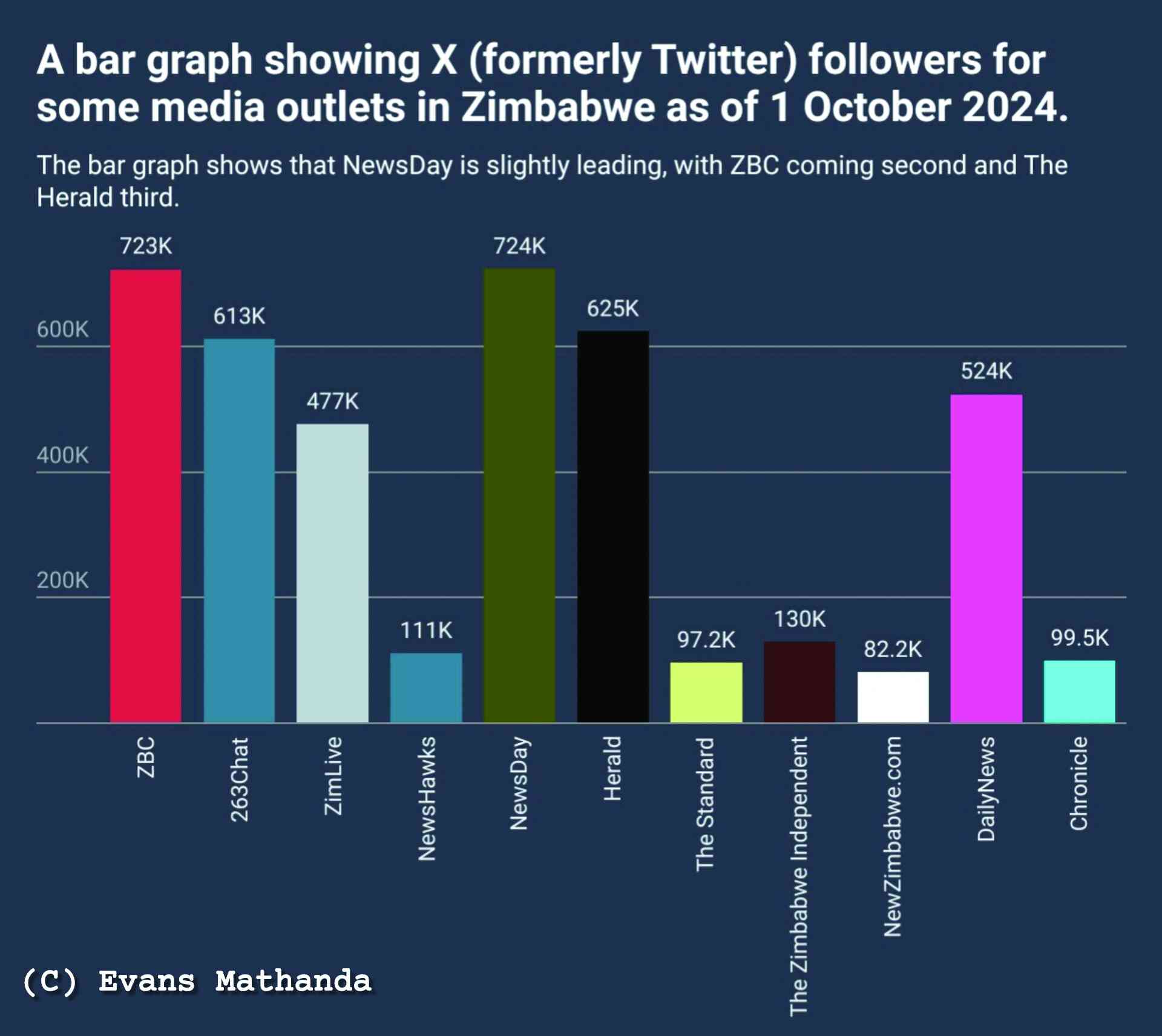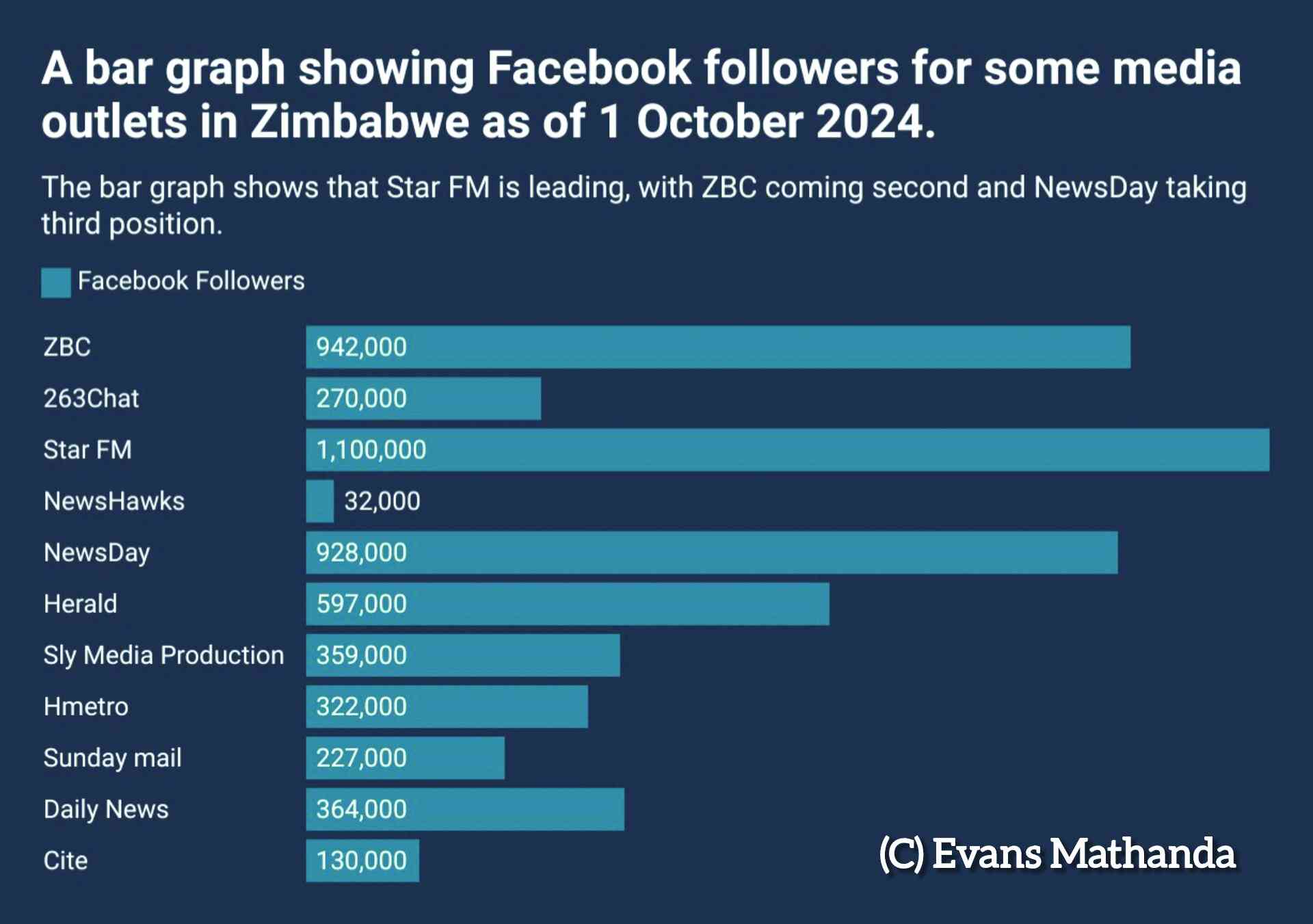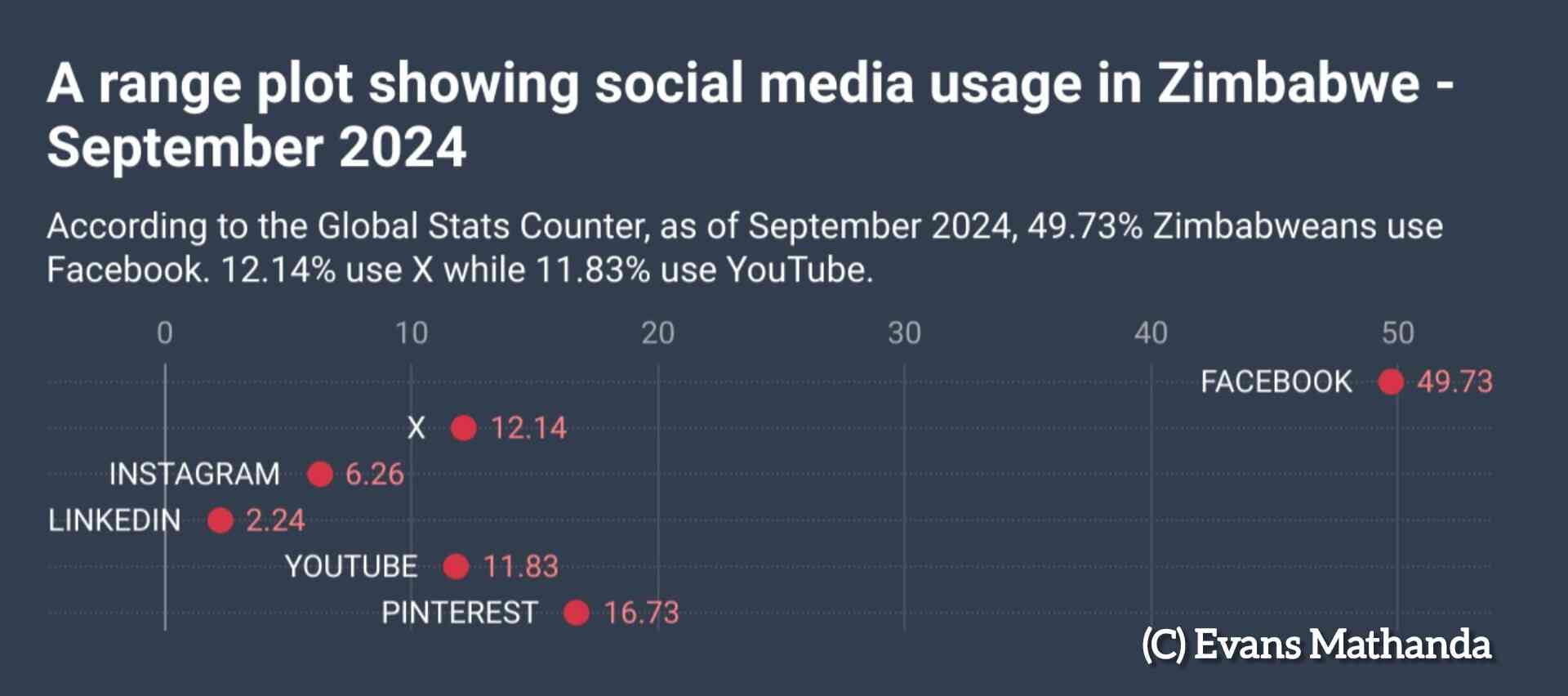
Forty five year-old Takunda Muridzo reminisces about how his late father used to routinely send him to buy the newspaper along with the daily supplies of bread from the shops while growing up.
Muridzo from Harare’s Waterfalls, who is now a father of three, reflected with nostalgia on how the consumption of news has evolved over the years.
His father was an avid reader, with love for traditional print media.
The daily ritual of buying the newspaper suggested a deep appreciation for the tangible experience and in-depth coverage offered by physical newspapers then.
Muridzo recalled the soft rustle of newspaper pages, the faint scent of ink and the level of concentration his father would display when getting his daily dose of current affairs.
He vividly remembers the days when his father, a man of few words, would gently shove him each morning, a silent reminder to fetch the daily paper.
“The newspaper vendors in Parktown knew me by my first name, I was their regular customer,” Muridzo said.
“At some point I could lie that my father did not give me the money to buy the paper and they would give me a copy because they knew I would definitely bring the money.
- Model uses fitness training to fight drug abuse
- Village Rhapsody: Rising suicide cases among men worrying
- Young voters could decide Zim’s 2023 presidential election: Will they?
- Politicians giving us nightmares — Police
Keep Reading
“I would buy myself sweets and some fruits that I would eat going back home with the newspaper under my armpit.”
Now that technology has moved faster than expected, very few people are still buying the hard copy newspaper as the digital audience grows and competition among news outlets becomes stiff, everyone wants to break the news online.
A wave of nostalgia washed over Muridzo as he remembered the days when he would be forced to walk to buy a newspaper. He wishes digital news could have started a century ago.
“I wish my father was alive to witness all these changes though I doubt he would have understood what it takes to read news online,” he said.
“I follow almost all media outlets online and I get to read news online. I only need data to read on my smartphone.
“Since the day I realised that the same stories in the NewsDay hard copy will be available on their website, I stopped buying newspapers and I noticed all media outlets upload their news stories online.
“So, there is no reason to buy the newspaper for me.”
The Reader's Digest closed in the United Kingdom in April of this year, following 86 years of service to a global audience.
The use of social media by local publications clearly defines the changing media landscape.
The more they share unique content, the more they grow their audience.
As of October 2, 2024, NewsDay’s X was slightly leading with 724 000 followers, with ZBC coming second with 723 000 and The Herald third with 625 000.
263Chat was at the fourth position with 613 000 followers while DailyNews took the fifth position with 524 000 followers.

Information, Publicity and Broadcasting Services minister Jenfan Muswere said the media landscape was changing at a faster rate and urged the media industry to quickly adapt to the new way of storytelling.
“The Stone Age did not come to an end because there was a shortage of stones. People decided to innovate and we are now in the fourth industrial revolution,” Muswere said.
“Statistics don't lie, it's quite a long time before we even get to 10 years there will be no print media in Zimbabwe.
“Before we used to sell over 100 000 copies of newspapers a day.
“Now combined, all of the print media houses are not printing more than 10,000 copies a day.
“In a few years to come, I don't think we will still have print media, but the media industry will still be very active through digital media.”
Muswere said in the light of the rise of social media and misinformation the government was working on a Media Practitioners Bill, which he believes will recognise media practitioners as professionals to curb misinformation on social media.
“The media industry will never die, but it will be more digital. So the proposed bill can improve on ensuring that in the coming years of innovation we can do away with the fake information on social media,” he said.
According to the Postal and Telecommunications Regulatory Authority of Zimbabwe (Potraz) Sector Performance Report in the first quarter of 2024, the total number of active data/internet subscriptions grew by 2.78% to reach 11,552,928 from 11,240,969 in 2023. The internet penetration rate gained 2.06% from 73.30% to 75.36%.
The report revealed that mobile internet/data traffic grew by 24.90% from 46.79 petabytes to 58.44 petabytes.
Mobile internet/data traffic grew by 24.90% from 46.79 petabytes recorded in the fourth quarter of 2023 to 58.44 petabytes in the first quarter of 2024.
“Digital transformation is fast becoming a reality as evidenced by a surge in data consumption through increased use of online trading, e-government, other digital platforms, and internet of things,” Potraz said.
“Internet penetration rate has been on an upward trend spurred by the continuous uptake of internet/data centric services as well as increased investment in infrastructure, like fibre-optic cables and the rollout of LTE and 5G mobile networks. “In addition, the government has implemented programmes and policies aimed at increasing internet access and usage, such as the National ICT Policy and the Digital Transformation Strategy.
“Furthermore, Zimbabweans now rely on the Internet for activities like e-commerce, online banking, education, and entertainment, resulting in increased adoption of internet services.”
Tendai Kaseke, a second-year student at the University of Zimbabwe said most students only buy data to read news online.
Kaseke said 5GB data can take him more than a week accessing all news websites and social media platforms of his choice.
According to the Global Stats Counter, as of September 2024, 49.73% Zimbabweans use Facebook, 12.14% use X while 11.83% use YouTube.
Pinterest has 16.73% of users while Instagram accounts for 6.26%. The business connected social network LinkedIn has only 2.24% users in Zimbabwe.

Churchill Otieno, the Africa Editors’ Forum chairman told The Standard People that traditional media must recalibrate their operations from business-to-business revenue models to business-to-customer models.
Otieno is also former president of the Kenya Editors’ Guild and former managing editor for digital news at the Nation Media Group.
He said the new strategies required significant and intentional cultural change over time stating the best approach will always keep good journalism at the centre.
“They must drop the one-size fits all approach, invest in research and development to map new monetisation models,” Otieno said.
“Advertising has served journalism well, but reality is thatsocial media today delivers more effectively for the advertisers, hence it’s unlikely the news media will retake it.
“Emerging technology offers both opportunities and challenges for Africa media.
“They provide a chance to improve accuracy in reporting by deploying smart tools in gathering and analysing content, present faster and more engaging options for packaging and distributing news content, and if harnessed can also provide new monetisation chances.
“However, the realty also is that there’s no magic wand hence each context requires customised deployment and adoption of emerging technology.
“In my view, we in Africa must keep testing to understand audience preferences and grow appropriate skills for this.”
Colleges and universities offering journalism and media studies can serve the future of journalism by adjusting modules to match the demands of the media industry, experts said.
Nqobile Nyathi, a former Daily News editor and lecturer at National University of Science and Technology, said there was a need to shift from aprint centric mindset to digital news to serve the media industry in Zimbabwe.
Nyathi said emerging technologies can foster sustainability by promoting innovative news formats and efficiency in content creation and distribution as this can help news organisations to attract and engage new audiences while maintaining existing audiences.
“I think that in many newsrooms, there might be a need for a change in mindset so that media executives stop prioritising print over their digital platforms,” Nyathi said.
“For example, we still see situations where there's a major event and, instead of uploading full reports on their digital platforms, news organisations provide teasers and promise to publish full accounts the following day.
“The problem with that is that by the time tomorrow's newspapers come out, most people have already read the full story on other online platforms.
“No-one is really waiting to read today's news tomorrow.”
According to the United Nations 2023 social media usage report, digital platforms which include social media channels, search engines and messaging apps are connecting billions of people across the planet, with some three billion users of Facebook alone.
The report states that digital platforms have brought many benefits, from supporting communities in times of crisis and struggle, to helping to mobilise global movements for racial justice and gender equality.
They are also used by the UN to engage people worldwide in pursuit of peace, dignity and human rights on a healthy planet.










